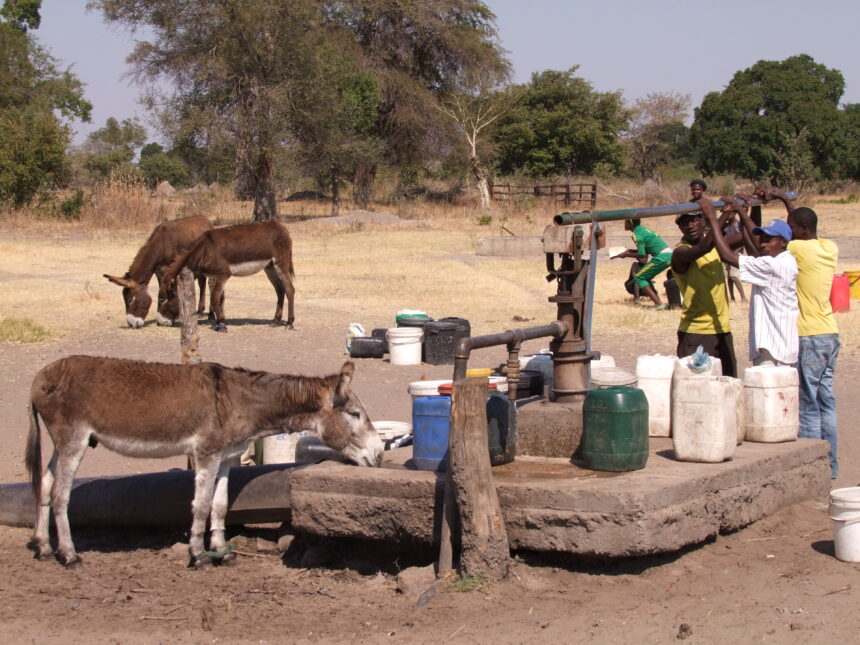KATIMA MULILO – Following an outcry by several defaulters facing disconnection in Zambezi over non-payment, NamWater reneged on this position, and will instead keep taps running to these affected communities.
This development follows a New Era report this week that several households and their livestock in the Zambezi region find themselves in a precarious situation after NamWater disconnected their water points over non-payment.
“In consideration of the plight of the affected communities and the current drought, NamWater has resolved to resume water supply to affected points, individuals and communities.
We urge the affected customers to engage NamWater officials at the Linyanti and Sibbinda constituency offices, and at the NamWater offices, starting Monday, 8 July 2024,” NamWater spokesperson Lot Ndamanomhata said in a statement on Wednesday.
He assured that the decision reflects NamWater’s commitment as a responsible corporate citizen.
However, he said NamWater will continue to engage with customers and stakeholders on the importance of paying their bills.
According to him, NamWater’s north-east business has conducted extensive stakeholder and customer engagement sessions to inform the community about their outstanding bills and the importance of timely payments.
“These engagements have been ongoing, emphasising our cost-recovery operating model to ensure sustainable water provision. NamWater has consistently operated on a cost-recovery basis, urging customers to pay for water services and regularly informing them of their monthly invoices,” he stressed.
Notably, he pointed out that Katima Mulilo has successfully settled its debt over the past year, demonstrating the positive impact of proactive engagement and responsibility.
To date, NamWater has revealed it is owed over N$2.1 billion by town councils and individual consumers countrywide.
Ndamanomhata continued that it is crucial for NamWater’s customers to remit payments to fund continuous water supply operations, infrastructure maintenance and expansion.
“NamWater, as a result, will switch to prepaid bulk water metres to encourage responsible usage, and ensure payments are made upfront. NamWater is also considering installing prepaid metres for individual residents as a new standard,” he said.
NamWater took over pipelines’ projects and assets from the Ministry of Agriculture, Water and Land Reform for operation and maintenance, including water metres and community water points.
He said the arrangement post-transfer was that community water points would be managed by individuals under the community development or village development committee.
“These individuals were responsible for collecting money from all beneficiaries of a water point, and making payments to NamWater. Unfortunately, in many cases, community leaders mismanaged the collected funds, resulting in no payments to NamWater and significant vandalism of the community water points,” he charged.
For shared community water points, residents are encouraged to apply for individual connections before any closures, as shared points are no longer sustainable.
NamWater, in line with its new strategy that is aimed at enhancing effective water supply services to the individual customer segment, has put in place a process where, for shared community water points, residents are encouraged to apply for individual connections before any closures, as shared points are no longer sustainable.
NamWater’s infrastructure, including dams, reservoirs, water pipe lines and purification plants, is costly to build and maintain.
He added the process of supplying water, particularly to remote and often inaccessible areas, is a significant financial challenge.
Despite these hurdles, he added, NamWater strives to keep water tariffs affordable, currently at an average of 1.5 cents per litre – even though the tariffs have remained the same for the past four years.
“That is N$15 per cubic metre (that is, 1 cubic metre is equal to 1 000 litres). NamWater is currently engaged in rolling out a water infrastructure expansion programme in the various regions at a value of N$3.5 billion over the next three years in order to meet water supply demand,” he indicated.
The bills, which run into thousands of dollars, date back to the Covid-19 outbreak in 2020, which brought economic activity to a standstill.
Most of these affected areas largely depend on community water points, some of which were set up by the government during the Covid-19 pandemic as a safety measure to ensure hygiene, and where residents were allowed to use water for free.
As a result, residents became reluctant to pay for their water bills, which accumulated into unmanageable bills.
Some of the affected residents, largely in Sibbinda and part of Linyanti constituencies, owe over N$400 000 in water arrears that accumulated over the past four years.
The affected villages include Kanono, Masokotwani, Malundu, Lusu, Chinchimani, Kikiya, Linyanti, Muketela, Kasheshe and Bito.
Although the water utility urged those with unpaid accounts and suspended services to visit their nearest office to arrange a payment plan, the entity has softened its stance and reconsidered its initial position.
-anakale@nepc.com.na
Photo: Nampa



